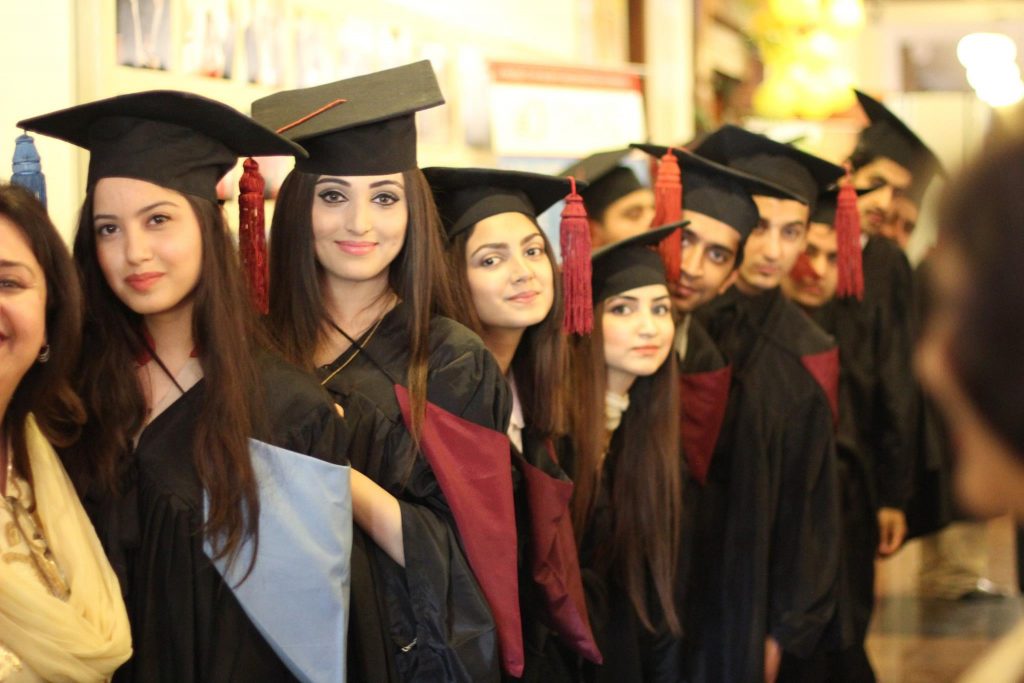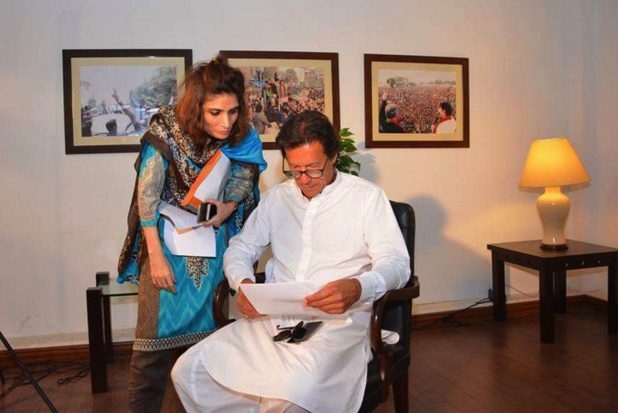
This year’s American election certainly kept misogyny in the headlines. So it came as no surprise when thousands of Americans took to the streets to advocate for women’s rights and civil liberties for minorities.
President Donald Trump on his first day in office, could not ignore thousands of protesters who marched for human dignity and justice. Echoing the sentiments internationally, sister marches emerged around the world in Washington DC, Paris, Los Angeles, New York, Toronto, London, Belfast, Rome and even some parts of Antarctica, reminding everyone watching that kind of treatment and language is not to be tolerated. The March became a global movement and many took to Twitter to support it, including women in Pakistan.
Earlier last year, Pakistan was ranked as the second worst country in the world for women after Yemen. According to the Gender Gap Index Report 2016 female participation was documented as extremely low in various categories including education health, survival and economic opportunity.
It’s no wonder that Pakistani women were eager to participate or show support for this historic protest. The women of Pakistan live in paradox of sorts. Despite having a female Prime Minister and a founding female leader, Fatima Ali Jinnah; they have yet to enjoy equal rights.
In recent history, Former President Musharraf has been both lauded and criticized for raising awareness for women’s active participation in Parliament, media, the arts and other prominent professions. However political involvement became the norm in 2013 when Imran Khan rallied the country to vote, targeting women and a younger demographic to contribute.
Pakistan has also taken initiative over the years to pass various bills such as the Acid Control and Acid Crime prevention Act (2013) which the government endorsed after two-time Oscar-winning-director, Sharmeen Obaid Chinoy rallied for banning acid attacks on women. The Anti-Sexual Harassment Bill (2010) and the recent Women’s Protection Bill (2016) were also subsequently debated in Parliament and the latter was even negated by the Islamic Ideological Council of Pakistan.
To trace the stream of inequality towards women, we spoke with the Director of the Center for Gender Studies at Quaid-e-Azam University, Pakistan’s leading educational institute, Dr. Kiran Nazir.
She pointed out that the feminism entered political discourse in the 1970’s where the military leadership adhered to orthodox and conservative bylaws for women.
‘During General Zia’s time, things went downhill for women, especially when the Hudood laws [Islamisation process] were introduced. The repercussions of that leadership are still evident in the present day realities of society. Historically activists have only focused on the legal reforms while there have been other social aspects that are just as important but unfortunately have been chiefly ignored.’
Pakistan seems to be in a constant back and forth between victory and regression when it comes to women since the 70s. 2016 in particular, was the year where violence against women increased, including the murder of a controversial internet star Qandeel Baloch by her brother in the name of ‘honor’. While the practice of honor killings have been denounced by the Pakistani government and the Islamic Council in Pakistan, the latter faced severe scrutiny last year for proposing a bill that encouraged men to ‘lightly beat’ their wives.
To gain some clarity on the situation; we spoke to Mrs. Andleeb Abbas, a prominent Pakistani politician who serves as the Secretary of Information for Pakistan’s third leading political party, Pakistan Tehreek-i-Insaf (PTI).

Ms. Abbas lauded the Women’s March held in Washington DC, and claimed that the same political lobbying culture has been developing among women since the party integrated a women’s wing.
‘Political decisions were primarily decided by male figures in households. They decided the candidate to vote for, and made major decisions. Women had little opinion or were too afraid to voice their thoughts freely. The rhetoric has changed these past few years and women are far more open and active. They are now taking to social media to express their opinions and even raising awareness for others.’
The PTI has accomplished the unprecedented in recent history, where thousands of female constituents came out to support the party. People joked that the men vote for the more traditional parties, but the women will vote for PTI.
However, irrespective of sluggish political success, the truth remains, as Dr. Nazir states, that Pakistani women are still subjected to inequality because of inherent structural realities.
‘It’s both astounding and unfortunate how women in spite of a history of activism, have to still defend their position in society. Feminism remains a stigmatized phenomenon in Pakistan and women have to consistently struggle to create that social acceptance.’
Many young educated working women believe their goals and opinions are often dismissed because of constant social pressure. Fatemah Sajwani, 23, a lifestyle blogger at What Fatemah Says shares her experience.

‘The fact that we are proud Pakistani Muslim women, challenges our work. We are constantly bashed for not being good Muslim girls because we maintain public social media accounts, and interact with the opposite gender. I love my job and love interacting with people. The fact that I write and earn for myself is still extremely unacceptable in Pakistan and it needs to stop already.’
Sadly, despite female achievements in various fields, public acceptance for women in power or even women’s rights in Pakistan still remains a farfetched concept. An ideological shift can only occur if marginalized women, who bear the brunt of inequality, campaign as a collective force for acceptance and equal standing in society.



















I’m so glad a Pakistani woman wrote this! Kudos Elan!
[…] Originally Published here: […]